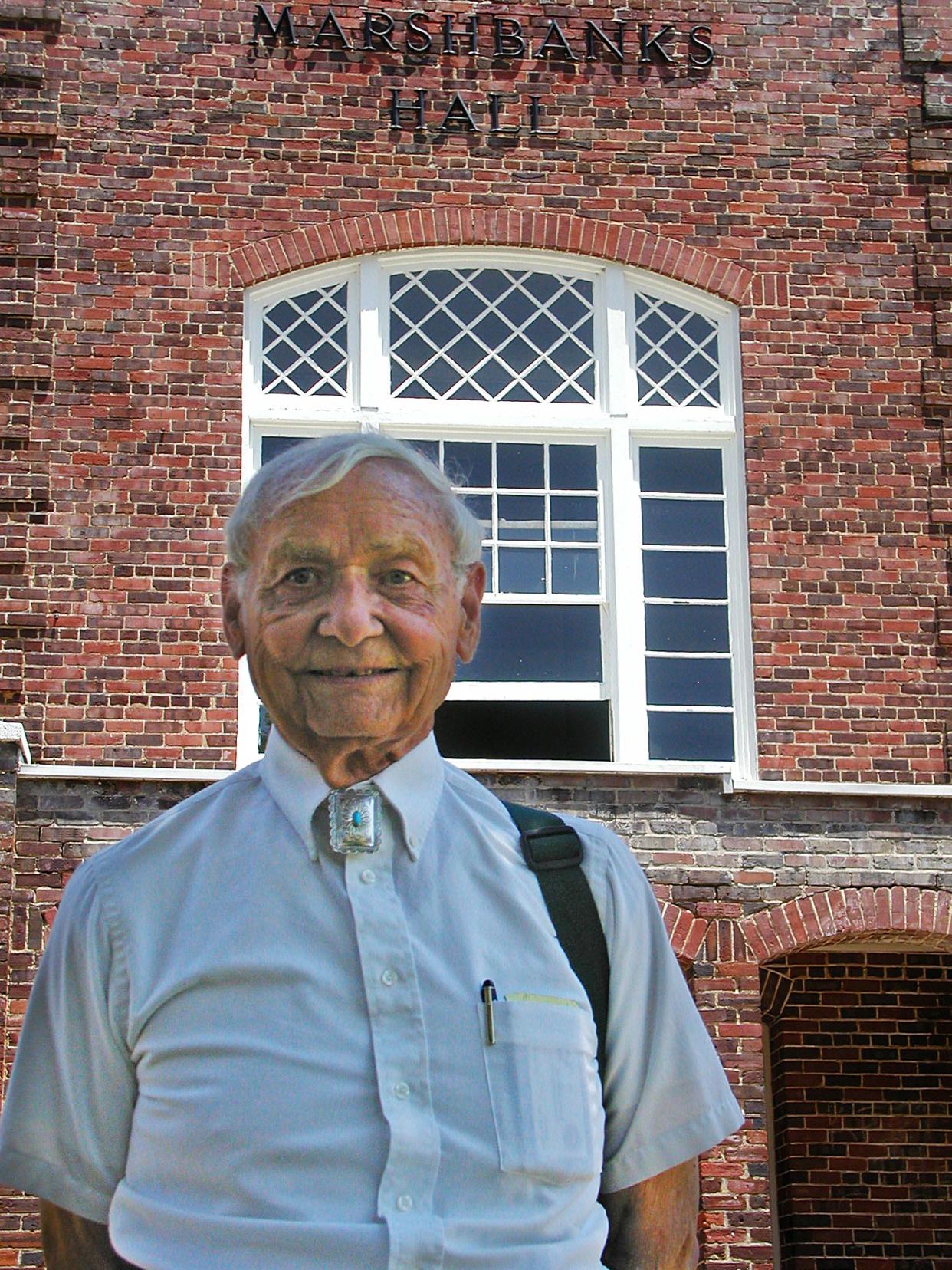Visiting Our Past: Harley Jolley received Order of the Long Leaf Pine

"They made their mark," Harley Jolley said about the Civilian Conservation Corps workers who changed the American landscape in the 1930s.
Jolley was a Mars Hill College professor, historian, and — early in his life — CCC enrollee. He died at age 100 in 2020 (edited).
Jolley's 2007 book, "That Magnificent Army of Youth and Peace: The Civilian Conservation Corps in North Carolina, 1933-1942," demonstrates how big government programs can work well, hiring and marshaling young workers, reversing the ill effects of deforestation and erosion and leaving a legacy that does not diminish. The CCC "is one of the great, great achievements of any government, any time," Jolley states.
In 1937, when Jolley graduated from Kings Creek High School in Caldwell County, where he'd been nicknamed "the professor," jobs were scarce. He got a job as an off-bearer at a sawmill, taking 100-pound slabs from the blade to the slab pile.
"Harley, you've got it made," the sawyer teased him, "You're only working one way."
It was no breeze, and when Jolley heard from friends about the CCC, he joined a soil conservation camp in Lexington. Specifically, he crawled up hillsides in lines of six men, planting pine saplings four feet apart.
The CCC was run jointly by the Army and civilians, and avoided charges of undermining unions. "Can do" was the CCC motto, though occasionally there was a fellow who couldn't hack the regimen.
"When I was researching the CCC story," Jolley says, "I was trying to find some man who had commanded a camp on the Blue Ridge Parkway. I finally found the address of a captain (Captain Franklin) up in Mitchell County."
Franklin had to rush to an appointment, but he paused to tell one story.
"As you know," the captain said, "every weekday, the boys would fall out for work, and you either go to work or go sick call. I had a boy who every day, every week went on sick call. The superintendent came to me and said, 'Cap, you've got to do something about this boy. He's ruining my work record.'"
Franklin consulted the camp doctor, who said the boy suffered only from homesickness. Yet, the doctor had a strategy. He told Franklin to discharge the boy for having nostalgia.
"Three days later," Franklin told Jolley, "I got a knock on my door. 'Are you the commanding officer?' 'Yes, sir. May I help you?' 'You may help us. We're going to sue you!' 'What are you going to sue me for?' 'Well, we sent you our boy in the very best of health, and don't you know, you sent him back with that dread disease, nostalgia.'"
Teaching history for 42 years at Mars Hill College — thanks to an education gained through the G.I. Bill (he served in the army after the CCC) — Jolley emulated his professor at the University of Tennessee, "Captain" Duggins. Dynamic movement and storytelling in the classroom suited Jolley's natural sense of humor. His late wife, Betty Cornett, taught history at Mars Hill also, and when he proposed to her on Christmas Eve 1949, he recommended, "'Tis the season to be Jolley."
Jolley was in 2008 working on updating his 1969 history book, "The Blue Ridge Parkway," and including the saga about the Grandfather Mountain link, which took 12 years to get accomplished.

"Grandfather Mountain changed owners during the time that the parkway was under construction," Jolley relates. "The new owner was a very savvy businessman — Hugh Morton — well aware that if the parkway ran very high along the mountain, there would not be much object (for tourists) to come to his preserve." Morton gained an audience with the state highway commission to debate the secretary of the interior, Conrad Wirth, before TV cameras.
Wirth overwhelmed his audience with charts and statistics. Morton, instead of hiring experts, brought in beloved Charlotte country musician Arthur Smith. As Jolley tells it, Smith said, "Gentlemen, I am here on behalf of Mr. Morton. This old gentleman from the federal government is trying to take Mr. Morton's land, and I beg with you sir, don't let him do that."
Morton added, regarding the highway's three options, "If you tunnel or destroy the land it would be like making a big cut through the Mona Lisa." Morton won. The government hit upon an alternative, what we now know as the Linn Cove Viaduct — which is, Jolley adds, "one of the most famous pieces of engineering in highway history."

Rob Neufeld wrote the local history feature "Visiting Our Past" for the Citizen Times until his death in 2019. This column originally was published June 18, 2008.
This article originally appeared on Asheville Citizen Times: Visiting Our Past: Harley Jolley received Order of the Long Leaf Pine

